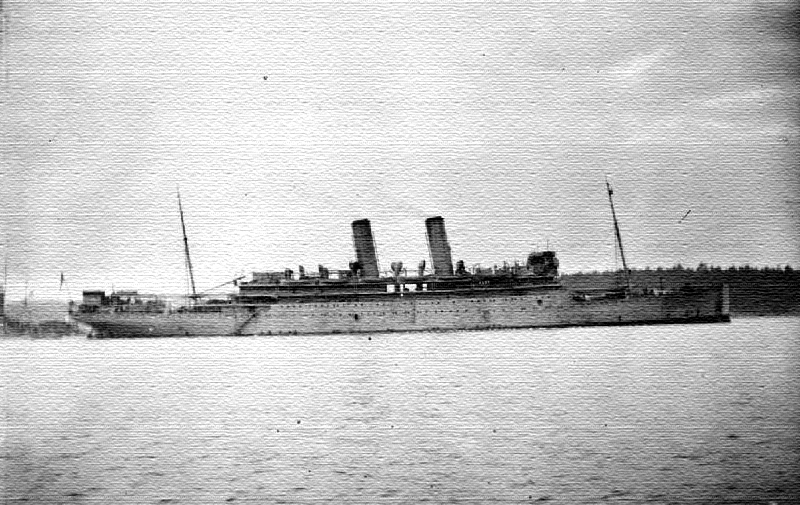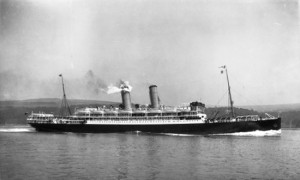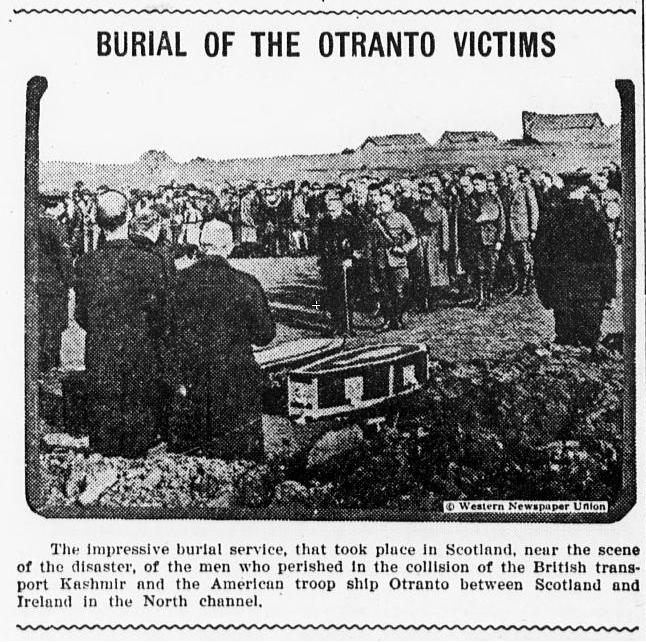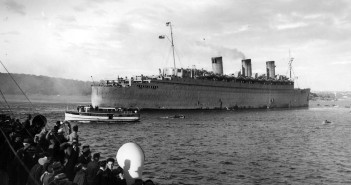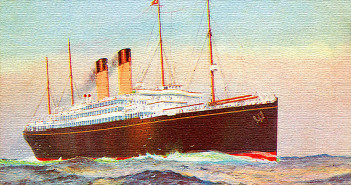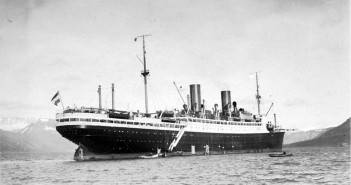On 6 October 1918 two former ocean liners serving as troopships in World War I—Otranto (1909) and Kashmir (1915)—collided off the northeast coast of Ireland, killing over 400 troops and crew.
Sailing in a convoy through heavy seas and fog that morning, officers on both vessels spotted land at approximately the same time. The master of Kashmir, a former P&O liner, correctly identified the land less than two miles of the port bow as the coast of Islay. The officer of the watch on Otranto, which sailed for the Orient Steam Navigation Company prior to the war, incorrectly thought that the land little over a mile off his starboard bow was Inishtrahull.
Both vessels’ helms were put hard over and their inside screws stopped to steer away from the danger—Kashmir to starboard, Otranto to port. Yet the course changes, tragically, turned the vessels toward each other.
Seeing Otranto suddenly materialize out of the haze, Kashmir turned quickly to avoid a collision. Otranto, however, struggled to maneuver in the heavy seas. At 8:45 a.m., despite attempts by both crews to avoid a collision by reversing rudders and engines, the ships collided. Kashmir knifed into Otranto’s port side amidships at the location of the ship’s hospital, nearly slicing the vessel in half. Several men in the hospital were killed outright.
The two ships, both badly damaged, rapidly drifted apart and lost sight of each other in the mist. Kashmir survived, but Otranto was finished. Water poured through a massive hole in her hull and, lacking power, she drifted helplessly toward the rocky Islay coast.
Otranto soon sank with the loss of 431 lives (351 American troops and 80 British crewmembers). Many more lives would have been lost had it not been for the courageous action of a destroyer captain who repeatedly brought his ship, H.M.S. Mounsey, alongside Otranto, enabling many troops and crewmembers to jump on board from the doomed ex-liner. The dead were buried with full military honors in a cemetery on Islay.

Click here to see dozens of more stories about ocean liners in wartime.
Please help keep Ocean Liners Magazine afloat. Any amount will be greatly appreciated.
—Regards, John Edwards, Editor/Publisher.

